The recent "insurer accountability" bill proposed by Florida lawmakers is a response to the long-standing problem of homeowners insurance in Florida. The legislation aims to increase fines for insurance companies that engage in bad behavior, require them to provide more information to the state, and follow best practices for handling claims. The bill also prohibits property insurance companies from dropping policyholders until their homes have been repaired. However, the real problem lies in the relationship between the insurance industry, regulators, and legislature, all of which appear to be working against Florida policyholders despite outwardly stating they are protecting policy holders from premium rate hikes because of litigation attorneys’ fees.Here are some highlights of the proposed bill:
https://www.flsenate.gov/Session/Bill/2023/07052 The legislation is an implicit admission that the insurance industry has received a light touch from state regulators, who have routinely approved company rate writings and advocated for making it harder to sue insurers. This cozy relationship between insurance regulators and the industry can be seen in the case of the previous Office of Insurance Regulation Commissioner, David Altmaier, who became an insurance industry lobbyist and joined the board of a Bermuda-based reinsurance company after leaving the post. Furthermore, the state's elected chief financial officer, Jimmy Patronis, who oversees insurance fraud and complaints against insurers, has received nearly $2 million in campaign contributions from the industry. When the bureaucrat that oversees complaints against insurers receives nearly $2 million in campaign contributions from the insurance industry, it’s a prime of example of the fox guarding the hen house. It’s also a sad day for Florida policy holders who believe the legislature has their back; it doesn’t, it has the insurance industry’s back. At times it seems as though the legislature serves at the pleasure of the insurance industry.
The recent reforms by the legislature have not yet led to lower insurance rates. Despite recent legislation, insurance companies such as First Community Insurance, Kin Insurance Network, and American Strategic Insurance Corp. have requested overall rate increases ranging from near-20% to 44.8% and 61.5%. This is despite the fact that the legislature eliminated the requirement that insurers pay policyholders' attorneys' fees if they sue and win, and addressed allegations made by private adjusters that insurers manipulated their reports to pay homeowners less for their claims. In conclusion, the relationship between the insurance industry, regulators, and legislature in Florida seems to be working against policyholders. The recent "insurer accountability" bill is a step in the right direction, but more needs to be done to ensure that the insurance industry is held accountable for its actions and that Florida policyholders are protected. Understanding the differences between drug trafficking and drug possession charges in Florida is essential to protecting your rights and securing the best possible outcome in your case. Based on Florida Statute §893.135, there are significant differences in the penalties and consequences for drug trafficking and drug possession offenses. If you or a loved one has been arrested for a drug-related offense, it is crucial to call Miami Criminal Defense Attorney Dennis Gonzalez Jr as soon as possible.Drug Trafficking vs. Drug Possession in Florida Under Florida Statute §893.135, drug trafficking involves the sale, purchase, manufacture, delivery, or possession of specific quantities of controlled substances. The penalties for drug trafficking offenses are severe and include mandatory minimum prison terms and substantial fines. The punishments depend on the type and quantity of the controlled substance involved. On the other hand, drug possession involves having a controlled substance without the intent to sell or distribute it. Possession charges can be classified as either actual possession (physically on the person) or constructive possession (in an area the person has control over). Penalties for drug possession are typically less severe than those for drug trafficking but can still include jail time, fines, probation, and a potential driver's license suspension. Why You Need Miami Criminal Defense Attorney Dennis Gonzalez Jr. Drug offenses can have life-altering consequences, and you need an experienced and dedicated attorney to represent you. Miami Criminal Defense Attorney Dennis Gonzalez Jr. has extensive real-life experience in applying defenses for drug trafficking and drug possession cases. He will work tirelessly to protect your rights and achieve the best possible outcome for your situation. Realistic Defenses for Drug Trafficking and Drug Possession There are several defenses that Miami Criminal Defense Attorney Dennis Gonzalez Jr. can apply to drug trafficking and drug possession cases, based on Florida law and the specific circumstances of your case:
The complexities of drug-related cases require the expertise of a knowledgeable and experienced attorney. Miami Criminal Defense Attorney Dennis Gonzalez Jr. will thoroughly investigate your case, identify any weaknesses in the prosecution's evidence, and develop a tailored defense strategy to secure the best possible outcome. Choose Miami Criminal Defense Attorney Dennis Gonzalez Jr. If you or a loved one is facing drug trafficking or drug possession charges, do not hesitate to contact Miami Criminal Defense Attorney Dennis Gonzalez Jr. for a comprehensive and vigorous defense. His dedication, expertise, and personalized approach will give you the confidence you need to navigate this challenging process. Call Dennis Gonzalez Jr. today and protect your rights and your future.
There was a time when driving under the influence (DUI) wasn't considered a criminal offense. Over the years, laws have evolved, and now DUI charges are taken more seriously than ever before. If you're facing a DUI charge in Miami Dade County, Florida, it's crucial to hire an experienced and knowledgeable attorney like Dennis Gonzalez Jr. to protect your rights and secure the best possible outcome for your case.DUI laws in the United States date back to 1910, but they were not always strictly enforced. In the 1930s, the first DUI screening device, the drunkometer, was introduced, followed by the breathalyzer in 1953. Despite these advancements, convictions for drunk driving were still rare. It wasn't until the 1970s that modern DUI laws were established, and the prosecution of intoxicated drivers became more aggressive. The introduction of "per se" drunk driving laws in the 1970s significantly changed the landscape of DUI cases. These laws made it easier for prosecutors to convict defendants without having to prove that they were driving recklessly. Instead, they only needed to establish that the defendant's blood alcohol content (BAC) was above the legal limit. Today, all 50 states have per se laws, and the maximum BAC for drivers is .08. Technology has played a significant role in DUI enforcement over the years. Devices like the drunkometer and breathalyzer allowed for the establishment of BAC standards. However, breathalyzers are not foolproof and can produce erroneous results, making it challenging for prosecutors to charge individuals with a BAC of .08 or close to it. Some states have introduced "impaired driving" laws to address this issue, allowing for charges that fall between a DUI and a traffic violation. Florida, however, does not have such laws.
If you've been charged with a DUI in Miami Dade County, Florida, it's essential to hire an experienced Miami criminal defense attorney like Dennis Gonzalez Jr. to represent you. With a deep understanding of the ever-evolving DUI laws and a commitment to protecting your rights, Attorney Gonzalez will work tirelessly to build a strong defense on your behalf. Don't let a DUI charge jeopardize your future. Contact Miami Criminal Defense Attorney Dennis Gonzalez Jr. today at (305) 209-0384 to schedule a consultation and start preparing your defense. The recent ban on the use of chokeholds by the Miami-Dade Police Department (MDPD) has brought the controversial tactic back into the spotlight. This decision comes in the wake of widespread protests following the killing of George Floyd by a Minneapolis police officer. Chokeholds, including the Applied Carotid Triangle Restraint (ACTR), have been at the center of discussions about police reform due to their potential for causing fatal injuries. The recent ban on the use of chokeholds by the Miami-Dade Police Department (MDPD) has brought the controversial tactic back into the spotlight. This decision comes in the wake of widespread protests following the killing of George Floyd by a Minneapolis police officer. Chokeholds, including the Applied Carotid Triangle Restraint (ACTR), have been at the center of discussions about police reform due to their potential for causing fatal injuries.
The ACTR tactic is different from the chokehold that killed Eric Garner in 2014, but both techniques have been criticized for the risk they pose to public safety. Chokeholds involve applying pressure to the windpipe, restricting airflow, while the ACTR targets the carotid arteries in the neck, which can lead to unconsciousness. Mistakes can easily happen during these maneuvers, resulting in serious injury or death. MDPD Director Freddy Ramirez announced the decision to ban the use of ACTR, citing a multitude of factors, including officer and public safety, feedback from policing professionals and community members, local leaders and officials, and recommendations from the Police Executive Research Forum. The change in policy is effective immediately, and the department will amend its training protocols accordingly. Several other South Florida agencies, including the Broward Sheriff's Office, Fort Lauderdale police, Wilton Manors, City of Miami, Miami Beach, and Hialeah police, have also banned all kinds of neck restraints. However, some departments do not directly ban or address them in their policies, and others only prohibit their use in situations where deadly force is justified. Cesar Serje, a jiu-jitsu black belt and mixed martial arts instructor, explains the difference between a chokehold and the carotid triangle restraint, emphasizing that the latter is less likely to cause permanent damage if not held for long periods. However, both techniques can have devastating consequences if applied incorrectly or used excessively. In response to the controversy surrounding chokeholds and other potentially dangerous tactics, many advocates are calling for alternative methods of subduing unruly suspects. By reevaluating and updating police training and policies, departments can work towards ensuring the safety of both officers and the public. The recent changes in Miami-Dade County and other South Florida agencies are just the beginning of a broader conversation about the need for comprehensive police reform. As quoted by two different police departments: "We know the concerns that the community has about this procedure, and so [Ramirez] made the call and said that will no longer be used by Miami-Dade police." - Miami-Dade County Mayor Carlos Gimenez. "The Hollywood Police Department's Response to Resistance policy does not strictly forbid the use of chokeholds or neck restraints. However, a defensive tactic of this type could only be used in a life or death situation where deadly force is justified." - Hollywood Police Department statement. These statements highlight the varying approaches to chokeholds and neck restraints among different police departments, illustrating the importance of continued discussions about police reform and the need for consistent policies to protect both officers and the public. As the debate surrounding chokeholds and neck restraints in law enforcement continues, it's essential to explore alternative methods for subduing suspects that prioritize safety for all involved. Some of these alternatives include: Verbal de-escalation: Training officers in verbal de-escalation techniques can help to resolve many situations without resorting to physical force. By developing communication skills and learning to empathize with individuals in distress, officers can often diffuse tense situations without the need for forceful intervention. Use of less-lethal tools: Equipping officers with less-lethal tools, such as Tasers, pepper spray, or beanbag rounds, can provide safer options for subduing suspects while minimizing the risk of serious injury or death. These tools should be used with caution and proper training, ensuring that officers understand the potential risks and limitations of each device. Grappling and control techniques: Law enforcement officers can benefit from learning non-lethal grappling and control techniques, such as those taught in Brazilian Jiu-Jitsu or other martial arts disciplines. These methods can help officers to control and restrain suspects without causing unnecessary harm or resorting to potentially dangerous neck restraints. Crisis Intervention Team (CIT) training: Officers who receive CIT training are better equipped to handle situations involving individuals experiencing mental health crises. By understanding the unique challenges these situations present, CIT-trained officers can respond more effectively and compassionately, reducing the need for force. Emphasis on community policing: Fostering strong relationships between police officers and the communities they serve can help to prevent conflict and reduce the need for forceful interventions. By promoting trust and understanding, community policing strategies can help officers to work collaboratively with community members to address public safety concerns and reduce the likelihood of confrontations. The recent changes in policy regarding chokeholds and neck restraints are a step in the right direction, but further action is needed to ensure comprehensive reform across all police departments. By considering alternative methods for subduing suspects, law enforcement agencies can prioritize public safety and work towards building trust with the communities they serve. In conclusion, the controversy surrounding chokeholds and neck restraints has led to significant changes in some police departments, but more work remains to be done. The conversation about police reform must continue, with a focus on finding safer alternatives and fostering transparency and trust between law enforcement and the public. By embracing change and working together, we can create a safer and more just society for all. In recent years, the development of artificial intelligence (AI) has greatly influenced our lives. AI technologies have been implemented in various fields such as healthcare, finance, education, and law enforcement. However, with the advancement of AI, there is a growing concern about the possibility of AI being used to frame individuals for crimes they did not commit, using deep fake videos and audio.
Deep fakes are AI-generated videos and audio that can manipulate and alter images, voices, and other aspects of digital content. With the increasing sophistication of deep fake technology, it is now possible to create realistic videos and audio that can be used to deceive even the most discerning viewer. This has led to concerns that deep fakes could be used to frame individuals for crimes they did not commit, by creating fake videos and audio that show them committing the crime. The use of deep fake technology to frame individuals for crimes is a serious concern, as it can lead to wrongful convictions and serious harm to the individual's reputation and livelihood. This is why it is important for individuals to be aware of this issue and to seek legal help if they are ever faced with such a situation. One such attorney who can provide legal assistance in such a scenario is Miami Criminal Defense Attorney Dennis Gonzalez Jr. Prior to becoming an attorney, Mr. Dennis Gonzalez Jr. was very much involved in the information technology sector where he worked as a Network Administrator for more than a decade. This gives him a unique understanding of the potential dangers of AI and deep fake technology, and the skills and knowledge to defend individuals who are wrongfully accused of a crime. If you find yourself in a situation where you have been framed for a crime through the use of deep fake videos or audio, it is important to contact an experienced criminal defense attorney like Dennis Gonzalez Jr. Miami Criminal Defense Attorney Dennis Gonzalez Jr. can help you navigate the legal system and work to clear your name, protecting your reputation and livelihood. In conclusion, while the advancement of AI and deep fake technology has many benefits, it also poses a significant risk to individuals who could be framed for crimes they did not commit. It is important to be aware of this issue and to seek legal assistance if needed. Miami Criminal Defense Attorney Dennis Gonzalez Jr has the expertise to defend individuals in such a scenario, providing them with the legal protection and support they need to clear their name. Famous podcaster Joe Rogan has raised concerns about artificial intelligence after a highly realistic, AI-generated version of his famous podcast, 'The Joe Rogan Experience,' appeared online. The fabricated episode, created with the help of AI chatbot ChatGPT, was published on YouTube on April 4 and features a conversation between Joe Rogan and Sam Altman, CEO of OpenAI, with a disclaimer that the ideas and opinions expressed are not indicative of their genuine thoughts.
The AI-generated Joe Rogan states, "Let me tell you folks, this is some next-level stuff we've got going on here today. Every single word of this podcast has been generated with the help of ChatGPT... I am not the real Joe Rogan… this is purely fiction." Following the release of this imitation podcast, the real Joe Rogan expressed his unease, tweeting, "This is going to get very slippery, kids." The Joe Rogan AI Experience aimed to explore the capabilities of language models, and it undoubtedly achieved that. For investors interested in benefiting from this trend, here are three AI stocks to consider, along with an additional cryptocurrency recommendation: Microsoft (MSFT): A major player in the AI landscape, Microsoft has been investing in OpenAI, the company behind ChatGPT, since 2019. Microsoft's stock performance has improved by 4% YoY as of April 13, reflecting strong revenue growth in the final quarter of 2022. Nvidia (NVDA): Nvidia, a leading chipmaker for AI software and services, has been endorsed by top financial institutions as a top AI stock for 2023. The company's stock performance is up 26% YoY as of April 13. Adobe (ADBE): Adobe, a multinational computer software company, has seen its stock performance drop 10% in the past 12 months. However, the company is still considered a solid AI stock due to its AI and machine learning capabilities within its Experience Cloud product. Cardano (ADA): This cryptocurrency has been making waves with its third-generation blockchain platform, which is built to accommodate AI and machine learning solutions. As the platform continues to develop, Cardano could become a significant player in the AI and blockchain space. Please note that this article is for informational purposes only and should not be construed as advice. It is provided without any warranty of any kind. by: Dennis Gonzalez Jr., Esq., 4/15/2023, www.dgonz.com Introduction:
In recent years, the global economy has witnessed a gradual shift towards the de-dollarization of financial markets, driven by countries like the BRICS (Brazil, Russia, India, China, and South Africa) seeking to reduce their dependency on the US dollar. As the United States faces an evolving landscape of international finance, it becomes imperative to explore the potential benefits of incorporating cryptocurrencies, such as Cardano ADA, into its economic strategy. This essay will elucidate the strategic advantages of adopting Cardano ADA in the context of de-dollarization and the potential implications for the United States. I. The Current State of the Global Economy and De-Dollarization: As global economies become increasingly interconnected, a growing number of countries have sought to reduce their reliance on the US dollar. The BRICS nations, in particular, have demonstrated a keen interest in exploring alternative currencies and financial systems. This de-dollarization trend, coupled with concerns over the stability of fiat currencies, has led to the emergence of cryptocurrencies as a viable alternative for financial transactions and investments. II. An Introduction to Cardano ADA: Cardano ADA, a decentralized and secure cryptocurrency, offers numerous advantages compared to traditional fiat currencies. With its innovative blockchain technology, Cardano provides a scalable, efficient, and transparent financial system that is resistant to manipulation and fraud. The Cardano ecosystem fosters trust among participants while ensuring the privacy and security of transactions. III. The Strategic Benefits of Adopting Cardano ADA for the United States:
Conclusion: In conclusion, the strategic adoption of Cardano ADA in response to de-dollarization offers numerous potential benefits for the United States. As the global economy continues to evolve, embracing innovative and secure cryptocurrencies like Cardano can bolster economic resilience, foster innovation, enhance financial inclusion, strengthen international trade, and facilitate regulatory compliance. By strategically leveraging the potential of Cardano ADA, the United States can navigate the challenges of de-dollarization and maintain its prominence in the global financial landscape. #Cardano #ADA #De-Dollarization #BRICS References: https://cardano.org/ https://www.investopedia.com/terms/b/brics.asp https://www.worlddata.info/alliances/brics.php Introduction White collar crime, drug trafficking, and money laundering have long plagued societies around the world. With the emergence of cryptocurrencies such as Bitcoin, Ethereum, and Cardano ADA, these criminal activities are taking on a new shape. This article examines the use of traditional fiat currency versus cryptocurrencies in criminal activities, the traceability of both, and the potential impact of government regulation on legal, legitimate users of cryptocurrencies. The Use of Fiat Currency and Cryptocurrency in Criminal Activities Fiat currency, such as the US dollar, has long been the preferred medium of exchange for criminal activities. It is often difficult to trace due to its physical nature, and can easily be laundered through banks, casinos, and other institutions. However, the use of cryptocurrencies is becoming increasingly popular among criminals, particularly in the realm of white collar crime, drug trafficking, and money laundering. Cryptocurrencies offer a level of anonymity and decentralization not found in traditional fiat currencies. Transactions are conducted electronically through a blockchain, which allows for peer-to-peer exchanges without the need for a centralized authority such as a bank. This makes it more challenging for law enforcement to track and monitor illegal activities. Traceability and Government Oversight While cryptocurrencies provide a level of anonymity, they are not entirely untraceable. Transactions are recorded on a public ledger, allowing for the possibility of tracing transactions back to specific addresses. Additionally, cryptocurrency exchanges often require users to provide identification information, which can be obtained by law enforcement through subpoenas or search warrants. In contrast, fiat currency transactions can be more challenging to trace, particularly when conducted in cash. However, regulations such as the Bank Secrecy Act and anti-money laundering (AML) requirements mandate financial institutions to report suspicious activities and maintain records, which can aid in tracking and monitoring illicit transactions. The Impact of Government Regulation on Legitimate Crypto Users As cryptocurrencies become more mainstream, there is an ongoing debate about the need for increased government regulation to prevent criminal activities. Proponents of regulation argue that it would protect legitimate users and help maintain the integrity of the cryptocurrency ecosystem. For instance, increased oversight could reduce the prevalence of scams, hacks, and other fraudulent activities that plague the crypto world. However, opponents argue that excessive regulation could stifle innovation and impede the growth of the cryptocurrency market. Furthermore, they contend that legitimate users of cryptocurrencies like Cardano ADA and Ethereum, which have shown potential for revolutionizing industries such as finance and supply chain management, could suffer from increased compliance costs and reduced privacy. Conclusion The use of cryptocurrencies in white collar crime, drug trafficking, and money laundering presents a new challenge for law enforcement and regulators. While cryptocurrencies offer certain advantages over traditional fiat currency in terms of anonymity and decentralization, they are not completely immune to government oversight and traceability. The debate surrounding increased regulation of cryptocurrencies is complex, with potential benefits and drawbacks for legitimate users. As governments and regulatory bodies continue to grapple with this issue, the future of cryptocurrencies and their role in criminal activities remains uncertain. Related: Crypto Currency Attorney
On July 1, 2023, Floridians will no longer need a permit to carry a concealed weapon, thanks to House Bill (HB) 543, which Governor Ron DeSantis recently signed into law. This new legislation strengthens the Second Amendment rights of Florida residents, making the state the 26th in the nation to enact Constitutional Carry legislation. In support of this new law and gun rights, we highlight the key points that gun owners should be aware of.
Key Points for Florida Gun Owners:
While opponents argue that this new law could make Florida more dangerous, the Republican majority and gun rights advocates maintain that law-abiding citizens have the right to protect themselves and carry guns. Under Governor DeSantis, the momentum has shifted back toward expanding gun rights, earning praise from gun rights advocates and legislators who believe in upholding Second Amendment rights. Florida's new Constitutional Carry law is a significant step toward empowering law-abiding citizens to protect themselves and their families. By understanding the key points of this new legislation, gun owners can exercise their rights responsibly and contribute to a safer, more secure society. In Miami, like in any other city, certain criminal charges tend to be more prevalent than others. Understanding these charges and knowing how to defend against them is essential, whether you're facing charges yourself or supporting a loved one. In this blog post, we'll explore the most common criminal charges in Miami – Aggravated Assault, Assault, Robbery, Burglary, Petit Theft, Grand Theft, Grand Theft Auto, Drug Arrests, and Possession – and provide insights on how to mount a strong defense. Aggravated Assault and Assault Aggravated assault involves the use of a deadly weapon or the intent to cause serious bodily harm, while simple assault does not involve a weapon and typically results in minor injuries. Defending against these charges often involves challenging the evidence, arguing self-defense, or proving that the alleged victim's injuries were not caused by the defendant. Robbery Robbery is the act of taking property from another person through force, violence, or threats. A strong defense against robbery charges might include disputing the victim's identification of the defendant, presenting an alibi, or arguing that the use of force was not part of the crime. Burglary Burglary involves unlawfully entering a building or structure with the intent to commit a crime. To defend against burglary charges, an attorney may argue that the defendant had no intent to commit a crime, had permission to enter the property, or was mistakenly identified. Petit Theft and Grand Theft Petit theft involves stealing property valued at less than $750, while grand theft involves property valued at $750 or more. To defend against these charges, a lawyer may argue that the defendant had no intent to steal, believed they had a legal right to the property, or that the value of the property was misrepresented. Grand Theft Auto Grand theft auto is the act of stealing a motor vehicle. Defenses for this charge can include disputing the identification of the defendant, presenting an alibi, or arguing that the defendant had permission to use the vehicle. Drug Arrests Drug arrests can involve various offenses, such as possession, trafficking, or manufacturing. Defending against drug charges often involves challenging the legality of the search and seizure, disputing the ownership or possession of the drugs, or questioning the accuracy of the drug testing. Possession Possession charges can include possession of drugs, drug paraphernalia, or illegal weapons. Defenses against these charges may involve disputing the evidence, arguing that the defendant was not aware of the contraband, or challenging the legality of the search and seizure.
|
Dennis Gonzalez Jr.
Miami Criminal Defense Attorney Archives
July 2023
Categories
All
|



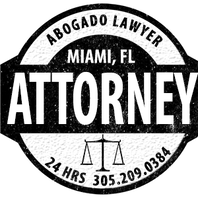


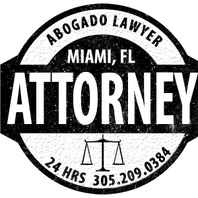




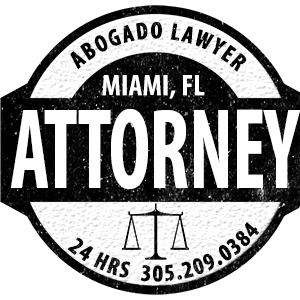

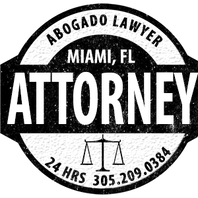

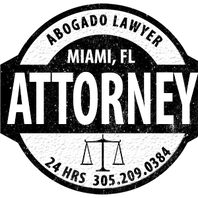
 RSS Feed
RSS Feed